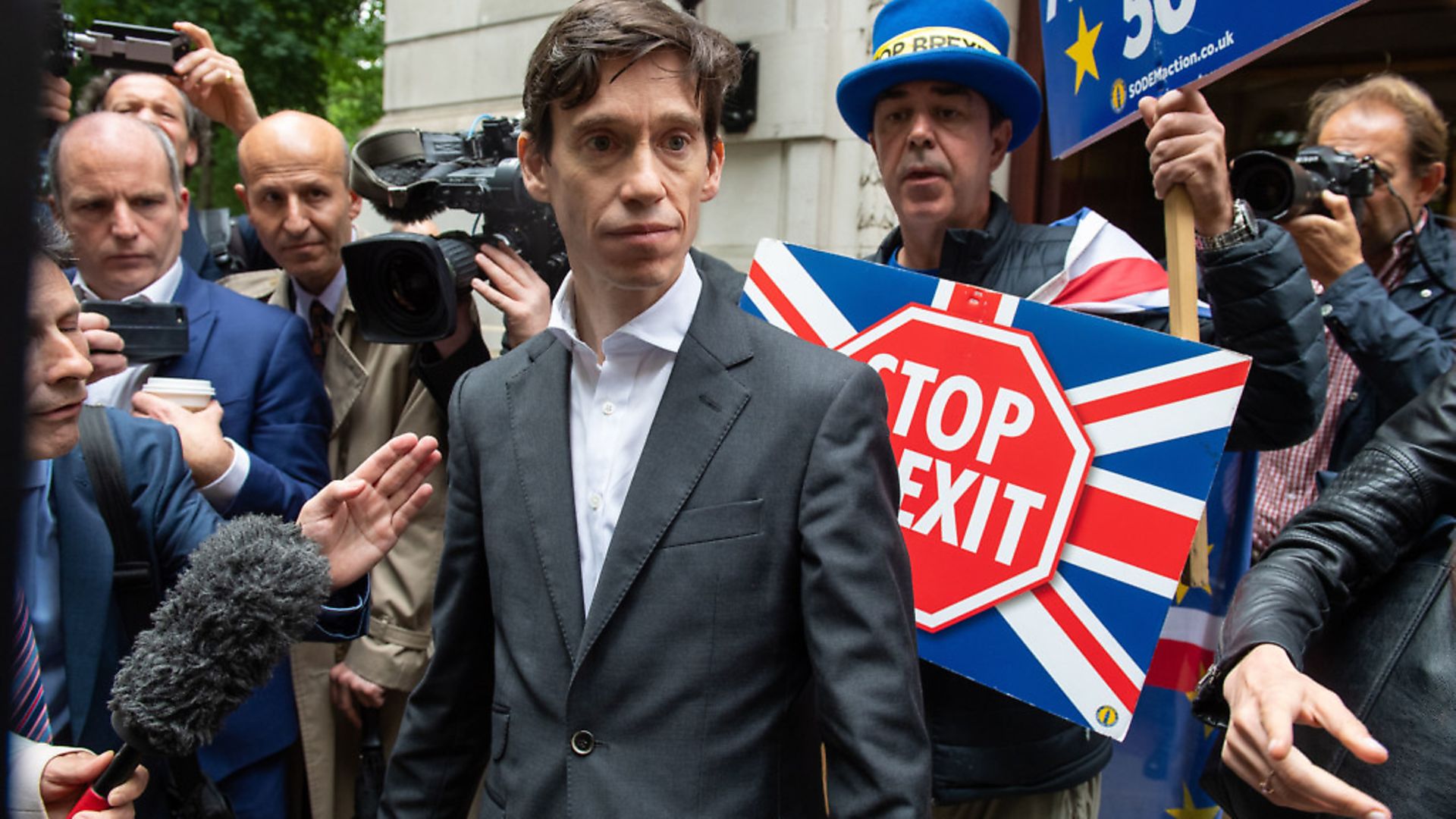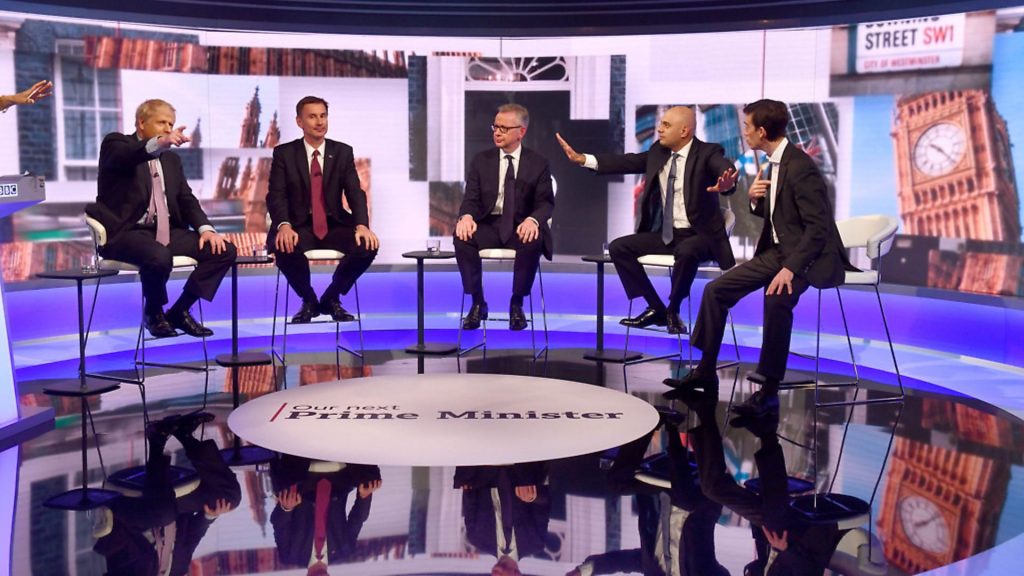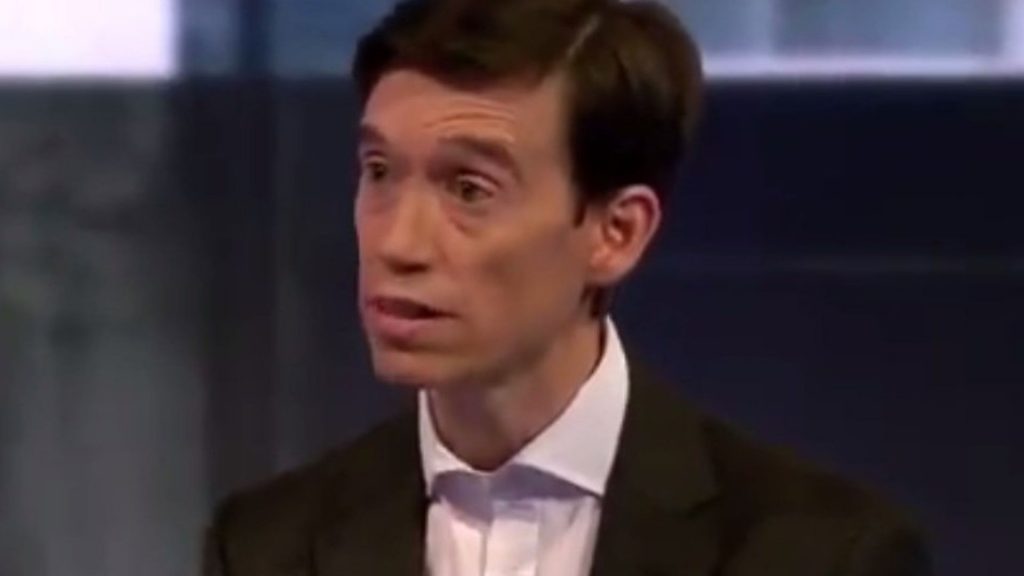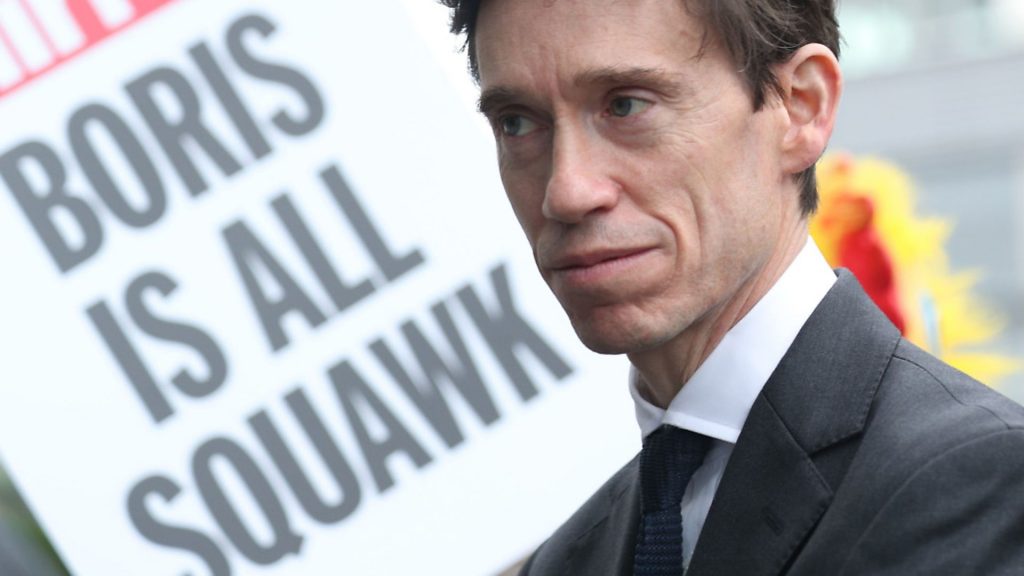
Rory Stewart’s deception wasn’t whether or not he was a spy, it was where he stood on Brexit.

Judging by some of the comments on right-wing news site, or Twitter – you’d be forgiven for believing that Rory Stewart was a left-wing liberal firebrand, a dedicated supporter of Remain, and the outside candidate for the leader of the Labour Party.
Stewart’s unexpected prominence in – and survival through the first rounds of – the Conservative leadership contest has seen him be painted as an unlikely Conservative, the most moderate of the candidates, and a hope for sanity on Brexit. It’s also seen him dismissed as a “wet” and as an “arch-Remainer”.
All of which is bizarre: though it should not need saying, Stewart is a Brexiteer and a very typical Conservative. If his policies resemble any other Conservative leader, it is likely Theresa May. So how has a man offering up these policies suddenly be made to appear as if he is atypical of his party, and any form of radical?
It’s certainly not his voting record. During his years in parliament, Stewart has almost always voted with his party – not surprising given he has served as a minister and then in cabinet, and only very rarely broke ranks with his fellow Conservatives.

One of the few votes on which he did rebel was one against an investigation into the Iraq War – hardly a rebellion that would endear him to the liberal or left-wing establishments. And while Stewart voted in favour of same-sex marriage, this is hardly some grand stand against the Conservative establishment – it was a vote introduced by David Cameron’s government.
Similarly, Stewart is not exactly some unlikely Conservative rags to riches story. He was the son of a former senior MI6 agent, educated first at Eton and then at Balliol College, Oxford – the exact same institutions as Conservative leadership favourite Boris Johnson.
His later career hardly bucks the establishment, with a stint ostensibly in the diplomatic service (but, if accounts are to be believed, as a spy) and a period as a regional governor during the occupation of Iraq, before becoming a Conservative MP. His is not a story that chimes with most of us as familiar. It’s closer to being the cliché of a Tory MP from central casting.
Is it his radical policy positions that have made him appear a firebrand, or a reformer? Perhaps it’s that he’s pivoted sharply away from the party’s record on austerity, or Theresa May’s recent but very gradual shift away from it?

“Getting a grip over our public spending was absolutely necessary,” Stewart told Conservative Home, “and we should be proud of our record as a party in bringing the deficit under control and restoring discipline to management of the public finances.” Clearly not, then.
In the same answer, Stewart endorses Theresa May’s decision to begin to increase spending somewhat, so no radical change there either. Things don’t really seem to shift on social policies, either, where one of his flagship ideas is to introduce a form of national service for young people, a policy oddly beloved by old Conservative men, despite the UK having few problems of mass unemployment (the official unemployment rate is just 3.8%), and despite all but the oldest of Brits never having done a day of it.
The answer, then, must surely be Brexit. Here he must have some plan which defies the Brexit-ish expectations of his party and either keeps the UK in the EU, or at least the single market? That must be why everyone got so worked up?
By now, you should not be surprised to hear the answer is yet again no. Stewart has proposed a citizens’ assembly, to get a selection of the public to hear about, and deliberate on, the thorny issues around Brexit, and to come up with some viable solution – a similar scheme to an effective plan in Ireland which helped shape the country’s referendum on abortion.
Stewart’s plan ignores the crucial detail that in Ireland the assembly took place before the referendum, allowing the public to vote on the specific proposals the assembly and then the legislature agreed. Trying to do the same three years after the vote – and with the widespread public anger and division that exists already – will achieve little.
In practice, it also seemed as if he didn’t expect it to. Stewart has ruled out no-deal, largely by saying parliament has no appetite to pass it – as multiple votes have shown is plainly true. He has refused to throw out the essential principles of British democracy and prorogue parliament to force through a seismic decision against political will (inexplicably outraging a party which is, in name at least, conservative). And he has ruled out a People’s Vote – and said he would ignore any citizens’ assembly proposals which were wildly unrealistic.
That leaves Rory Stewart with… Theresa May’s EU Withdrawal Agreement, which he voted in favour of three times.
What does that leave us with? With an establishment Conservative figure, who has almost always voted with his party, and whose core proposals are pretty much to keep on doing what Theresa May has been doing, on the economy and on Brexit, with a smattering of national service to keep the members happy.
That this man appears like fresh air, or a moderate figure, or someone wildly and unacceptably left wing to the bulk of the Conservative Party’s MPs – let alone members – is a sign of how the party has shifted, even in the last few weeks and months, from its own historical basis and its own traditional ideology.
There are few signs Stewart is anything other than a Theresa May-ish standard issue Conservative politician – other than the ability to put out half-decent social media videos and occasionally look and sound like a convincing human being.
That Stewart has garnered such hopes, such controversies, and seems so different from much of the Conservative Party at present actually tells us very little about him – and isn’t really about him. All it’s showing is how far the Conservatives have shifted over the last three years.
Other than its colour scheme, what real difference remains between the Conservative Party and the Brexit Party? MPs may wish to have a good answer to that before they go back on the doorsteps.










